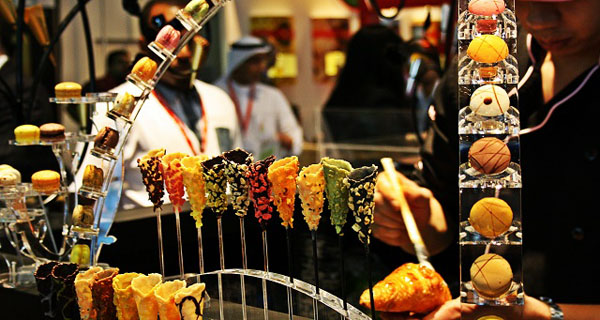
Global food trends are constantly evolving. The following list contains 5 current and emerging trends which can be observed at the 20th edition of the world’s largest annual food and hospitality trade show, Gulfood 2015, which takes place at Dubai Trade Center (DWTC) from 8-12 February 2015. With imports accounting for between 80-90 percent of UAE food consumption, Dubai is best placed to cater for increasing demand in regional food trading. According to a recent report by Euromonitor, the number of food and beverage outlets in the UAE is expected to double in the next four years, making food service and hospitality equipment a particularly pertinent sector at Gulfood 2015.
1. More meat: Gulfood has predicted that “with increased quality, freshness and a demand for improvement halal standards being a paramount importance, the regional market is vast for any player in the global meat industry”. The population within the GCC countries- Bahrain, Kuwait, Oman, Qatar, Saudi Arabia and United Arab Emirates, is set to exceed 50 millions by 2020, a 20 per cent increase since 2010, with rising regional affluence levels resulting in increased demand for meat.
2. Convenience foods: people spend less time preparing elaborate meals, opting for the convenience of ready-to-eat, pre-packaged food instead. In addition, a greater number of organised retail in UAE has significantly contributed to the growing demand for processed food, which currently accounts for more than 50 per cent of the GCC food industry and equated to a value of $25 billion in 2013.
3. Healthy & organic: continued consumer demand for all things healthy, organic, additive-free and natural is driving an increasingly health-conscious food market, both regionally in the Gulf and internationally. The GCC market for organic produce is set to reach $1.5 billion by 2018 and the UAE.
4. Locally-sourced ingredients: There is a growing market for seasonal produce that is sourced or grown locally including meat, seafood, fruits and vegetables. Given limited water resources and climatic conditions, however, farming activities remain marginal and the UAE and wider region are heavily reliant on imports.
5. Responsibly-sourced animal products: As food sustainability moves up the agenda for consumers and restaurants, more focus is given to cage-free eggs, free-range chickens and livestock, and sustainable seafood. In the UAE the overfishing of hammour has received considerable attention and many restaurants no longer serve the ‘under threat’ fish stock.
